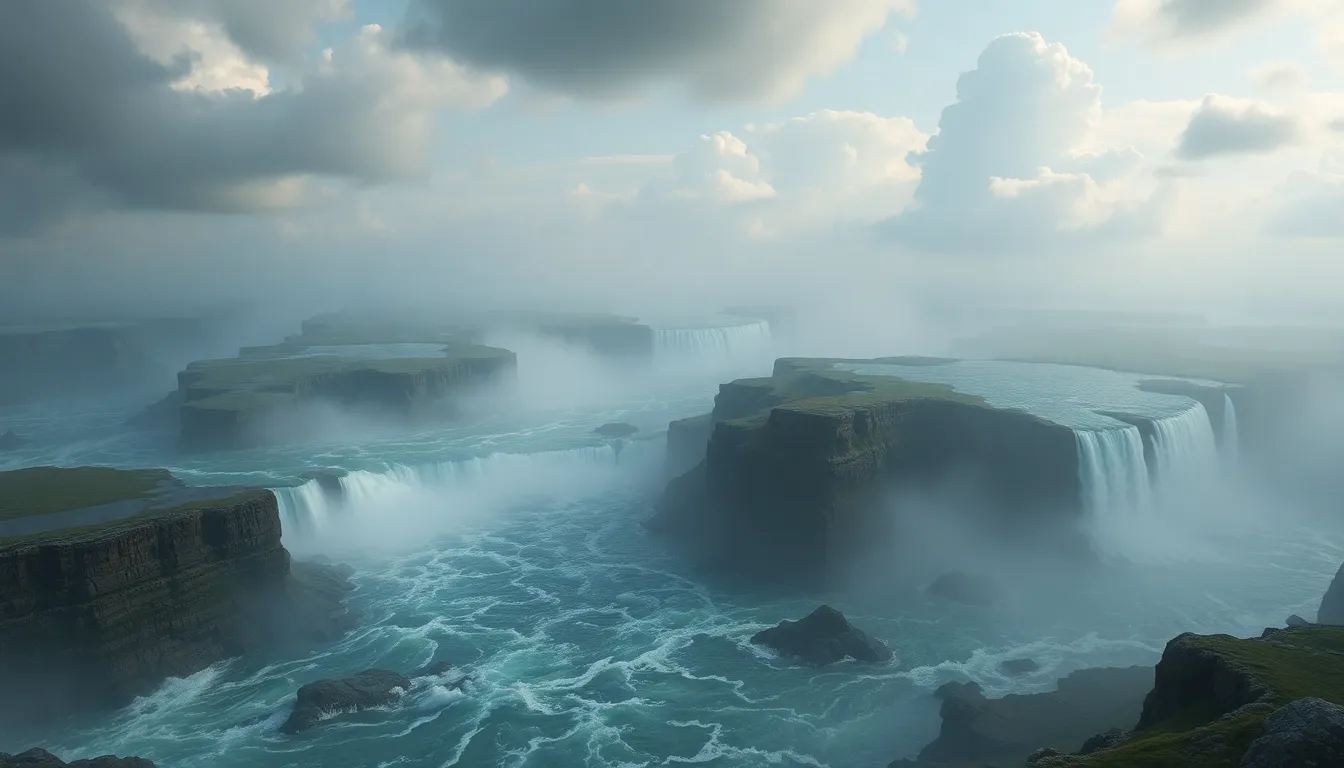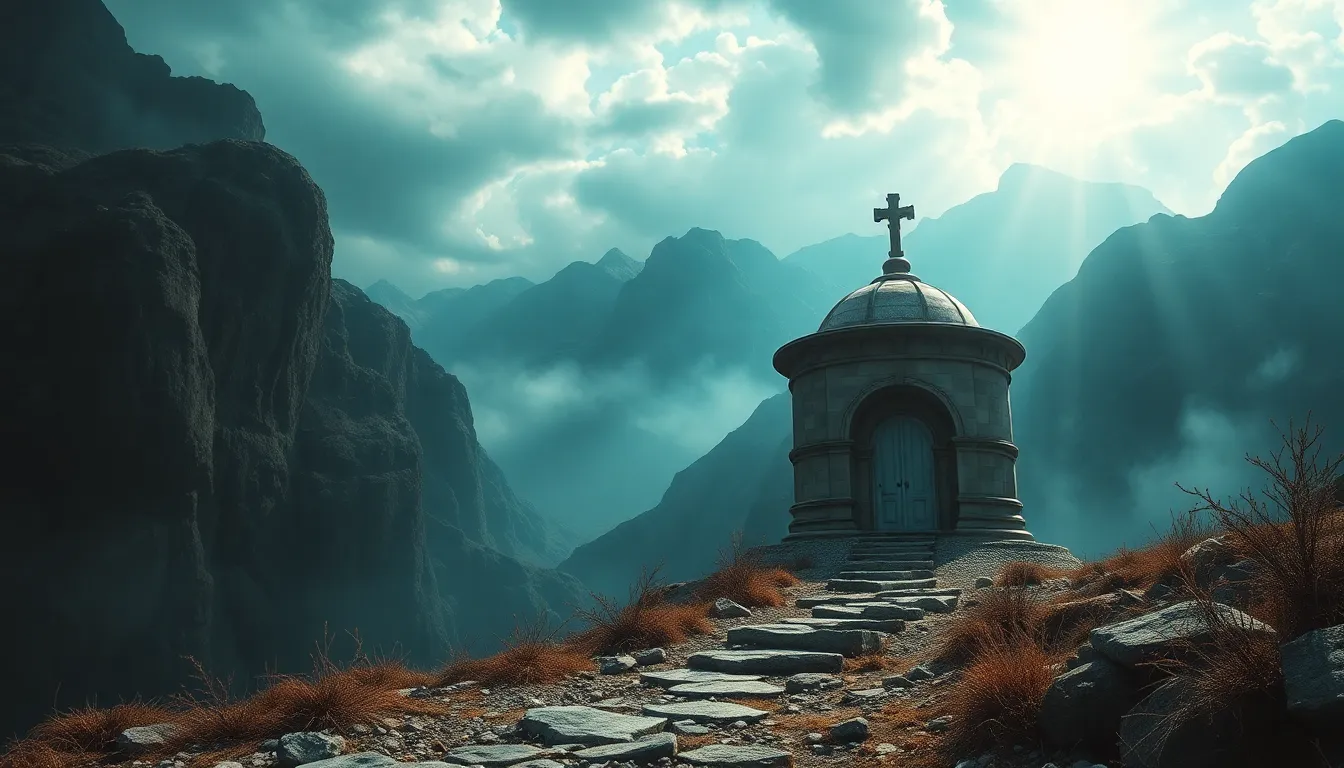The Great Floods of Mythology: A Comparative Study of Global Narratives
Introduction to Mythological Floods
Throughout history, cultures around the globe have told stories of catastrophic floods that reshape the world and the lives of its inhabitants. These mythological floods serve not only as cautionary tales but also as reflections of societal values, fears, and the human experience with nature. This article aims to explore the various flood myths across different cultures, examining their significance, common themes, and the enduring legacy they hold in contemporary society.
The Concept of the Great Flood in Human History
Floods have been a recurrent theme in human civilization, often arising from real historical events such as rising sea levels, heavy rainfall, or tsunamis. The psychological impact of such disasters can lead societies to create narratives that explain, justify, or warn against the chaotic power of nature.
Historically, the Great Flood symbolizes a cleansing or rebirth, representing the idea that destruction can lead to renewal. Flood myths allow cultures to articulate their struggles with survival, morality, and the balance between humanity and the natural world.
Key Characteristics of Flood Myths Across Cultures
Despite the diversity of cultures, several key characteristics emerge in flood myths around the world:
- Divine intervention: Many myths feature gods or deities who cause or control the flood.
- Survivors: Typically, a few individuals or families are chosen to survive and repopulate the earth.
- Symbolism of water: Water often symbolizes destruction and chaos, but also purity and renewal.
- Moral lessons: Flood myths often convey themes of morality, justice, and the consequences of human behavior.
The Mesopotamian Flood: The Epic of Gilgamesh
The Epic of Gilgamesh, one of the oldest known works of literature, contains a flood narrative that parallels the biblical account of Noah. In the story, the god Enlil decides to flood the earth to eliminate humanity, which he perceives as noisy and troublesome. However, Utnapishtim, a mortal man favored by the gods, is warned of the impending deluge and builds a massive ark to save himself, his family, and a selection of animals.
This narrative is significant as it illustrates the relationship between humans and the divine, showcasing themes of friendship, mortality, and the quest for immortality. The cultural impact of this myth has resonated through time, influencing subsequent flood stories, including those found in the Judeo-Christian tradition.
The Biblical Flood: Noah’s Ark
In the Book of Genesis, the story of Noah’s Ark presents a divine judgment against humanity’s wickedness. God, seeing the corruption of mankind, decides to cleanse the earth with a flood and instructs Noah to build an ark to save his family and pairs of each animal species. The narrative culminates with the promise of a rainbow as a sign of God’s covenant with humanity never to destroy the earth by flood again.
The theological implications of this story are profound, influencing Western religious thought on sin, redemption, and divine mercy. It serves as a moral lesson about obedience and faith, while also reflecting societal fears of divine retribution and the consequences of human actions.
The Hindu Perspective: Manu and the Great Deluge
In Hindu mythology, the story of Manu and the great deluge is detailed in the Matsya Purana. Manu, the first man, is warned by the fish Vishnu of an impending flood that will destroy all life. Following the fish’s guidance, Manu builds a large boat and gathers seeds, animals, and sages to preserve life. When the flood subsides, he repopulates the earth.
This myth emphasizes themes of duty (dharma), preservation of life, and the cyclical nature of existence. It also highlights the importance of listening to divine wisdom and the interconnectedness of all living beings.
Indigenous Narratives: The Great Flood in North America
Native American cultures possess a rich tapestry of flood myths, with stories varying significantly among tribes. For example, the Ojibwe recount a tale where Nanabozho, a cultural hero, creates a raft to escape a great flood that wipes out the world, while the Cherokee tell of a great flood that results in the creation of the current landscape.
These narratives often reflect a deep connection to nature and spirituality, emphasizing respect for the earth and its cycles. The floods serve as reminders of nature’s power and the need for harmony between humanity and the environment.
Asian Flood Myths: The Tale of Yu the Great
In Chinese mythology, the tale of Yu the Great is notable. Following a catastrophic flood, Yu dedicates his life to controlling the waters, employing innovative techniques to divert rivers and drain marshes. His efforts lead to the establishment of agricultural prosperity and stability in society.
This myth not only illustrates the struggle against nature but also symbolizes the importance of governance, hard work, and the human capacity to overcome challenges through wisdom and perseverance.
Comparative Analysis of Flood Myths: Commonalities and Differences
When examining flood myths from various cultures, several commonalities emerge:
- Divine or supernatural causes of floods
- Survivors tasked with repopulating the earth
- The dual nature of water as both destructive and life-giving
- Lessons about morality and human behavior
However, differences also exist, often reflecting the unique cultural, geographical, and historical contexts of each society. For instance, while many myths include a divine decree, some indigenous narratives emphasize a more reciprocal relationship with nature.
Conclusion: The Enduring Legacy of Flood Myths
Flood myths continue to resonate in modern society, serving as powerful narratives that reflect humanity’s relationship with nature. They remind us of the fragility of life and the importance of respecting the environment. As we face contemporary challenges such as climate change and natural disasters, these ancient stories can provide valuable lessons about resilience, adaptation, and the need for harmony with the natural world.
Ultimately, the enduring legacy of flood myths lies in their ability to connect us to our past, offering insights into the human experience and the timeless struggle against chaos and destruction.




